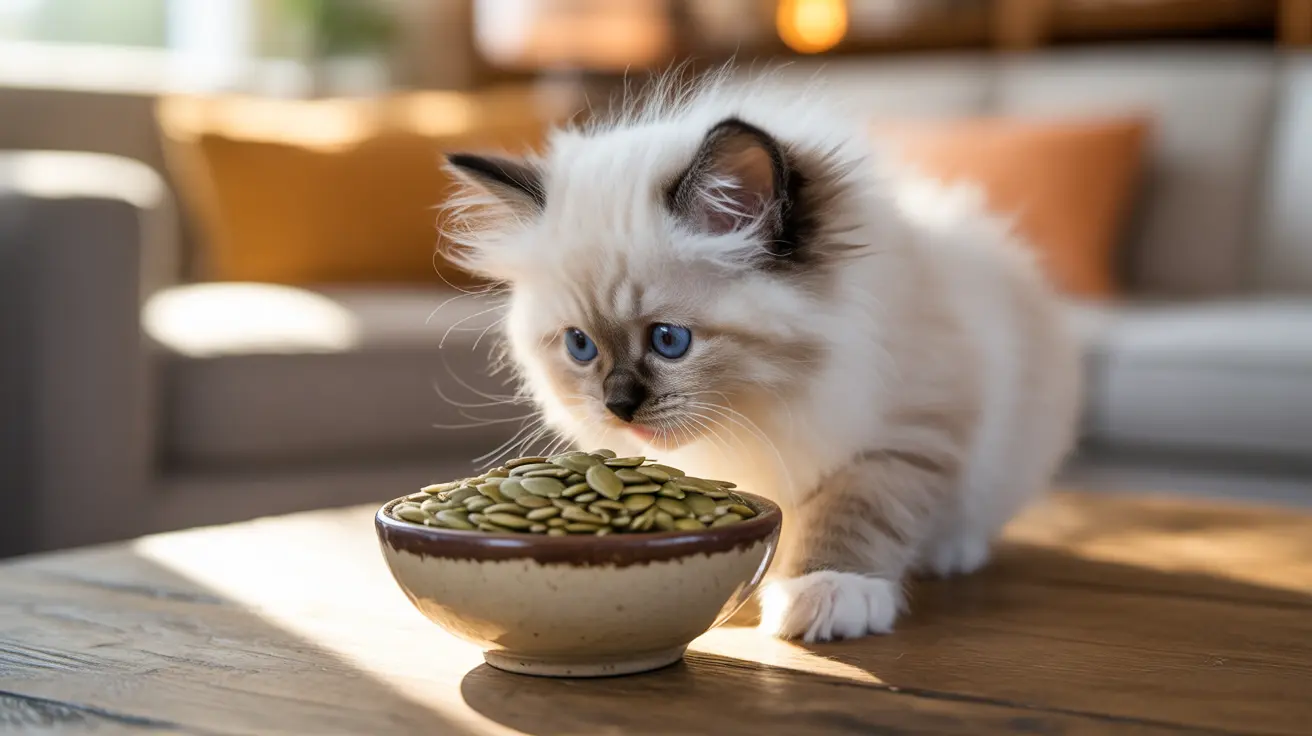Understanding Natural Deworming Options
Natural dewormers for kittens encompass a range of plant-based ingredients and food-grade substances that may help combat intestinal parasites. These options often work through different mechanisms, from physically disrupting parasites to creating an inhospitable environment for worm survival.
Common Natural Deworming Ingredients
Several natural ingredients have shown promise in supporting parasite control in kittens:
- Pumpkin Seeds: Rich in cucurbitacin, which may paralyze certain worms
- Food-Grade Diatomaceous Earth: Works mechanically to dehydrate parasites
- Coconut Oil: Contains antimicrobial compounds that may help control some parasites
- Ground Carrots: May help physically remove mucus and parasites
Safety and Effectiveness Considerations
While natural options can be gentler on a kitten's system, their effectiveness varies significantly. Some important factors to consider include:
- The type and severity of the worm infestation
- Your kitten's age and overall health
- The quality and purity of natural ingredients
- Proper dosing and administration methods
Proper Administration Guidelines
When using natural kitten dewormers, follow these essential guidelines:
- Start with small amounts to ensure tolerance
- Monitor your kitten for any adverse reactions
- Maintain consistent administration schedules
- Keep detailed records of treatments and results
Combining Natural and Conventional Approaches
The most successful deworming strategies often combine natural and conventional treatments under veterinary supervision. This integrated approach can:
- Maximize treatment effectiveness
- Minimize potential side effects
- Support long-term parasite prevention
- Address immediate and ongoing parasite concerns
Prevention and Maintenance
Natural deworming should be part of a comprehensive parasite prevention strategy that includes:
- Regular veterinary check-ups
- Proper sanitation and hygiene
- Appropriate nutrition and immune support
- Ongoing monitoring for signs of infestation
Frequently Asked Questions
What are the safest natural dewormers for kittens and how do they work?
The safest natural dewormers for kittens include pumpkin seeds, food-grade diatomaceous earth, and coconut oil. These work through different mechanisms: pumpkin seeds contain compounds that can paralyze worms, diatomaceous earth mechanically damages parasites, and coconut oil's antimicrobial properties may help control certain parasites.
How should I dose pumpkin seeds as a natural dewormer for my kitten?
For kittens, use approximately 1/4 teaspoon of ground, raw pumpkin seeds per 5 pounds of body weight daily. Always consult your veterinarian before starting any treatment regimen, as individual needs may vary.
Can natural remedies like diatomaceous earth or coconut oil effectively replace chemical dewormers for kittens?
While natural remedies can support parasite control, they typically shouldn't completely replace conventional dewormers, especially in cases of serious infestations. These natural options work best as part of an integrated approach under veterinary supervision.
What are the risks and side effects of using herbal dewormers like wormwood or cloves on young cats?
Herbal dewormers can pose risks if not properly dosed. Wormwood and cloves can be toxic in high amounts. Side effects may include digestive upset, nervous system problems, and liver damage. Always consult a veterinarian before using these herbs.
How can I safely combine natural dewormers with veterinary treatments for intestinal parasites in kittens?
Work with your veterinarian to create a coordinated treatment plan. Many natural dewormers can be safely used alongside conventional treatments, but timing and dosing are crucial. Regular monitoring and adjustments may be necessary based on your kitten's response.
Conclusion
Natural kitten dewormers can be valuable tools in parasite management when used appropriately and under professional guidance. While they may not completely replace conventional treatments, they can provide additional support in maintaining your kitten's health. Always prioritize safety and effectiveness by working closely with your veterinarian to develop the most appropriate deworming strategy for your pet.






